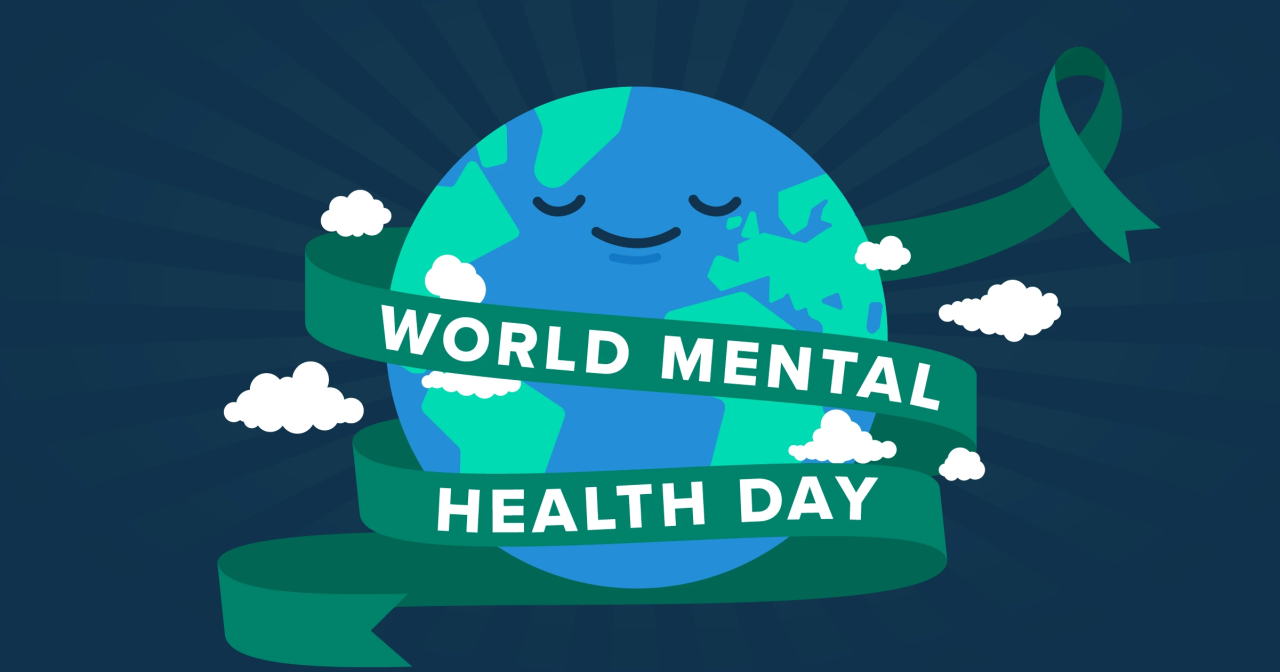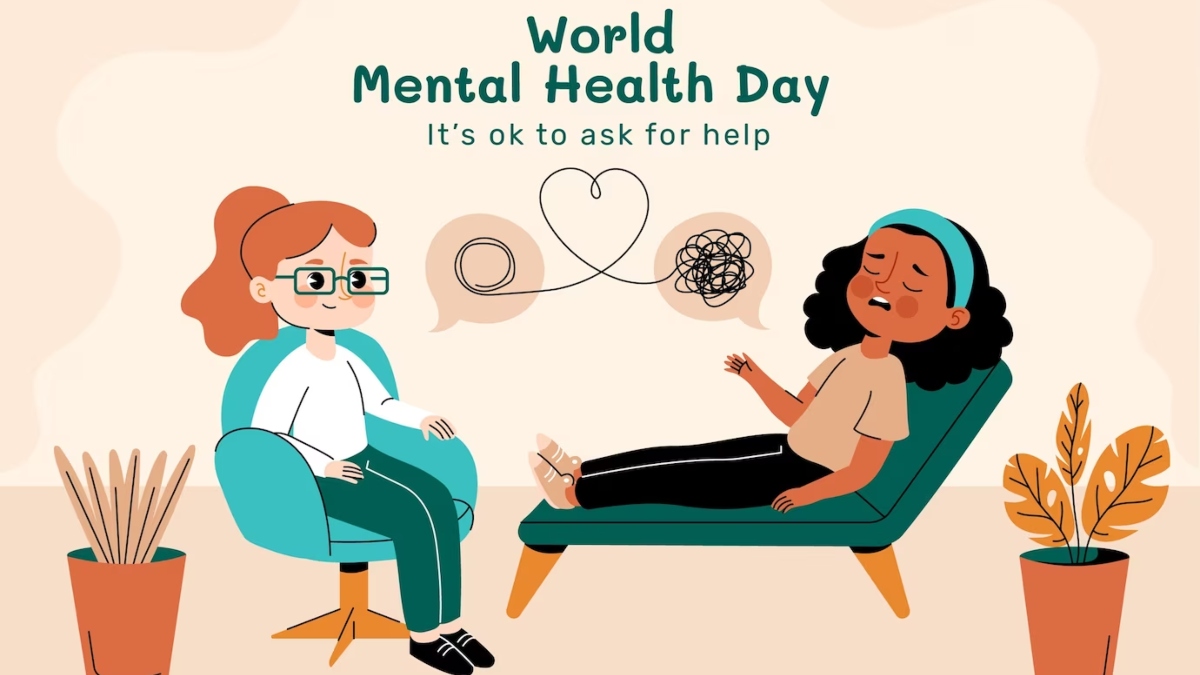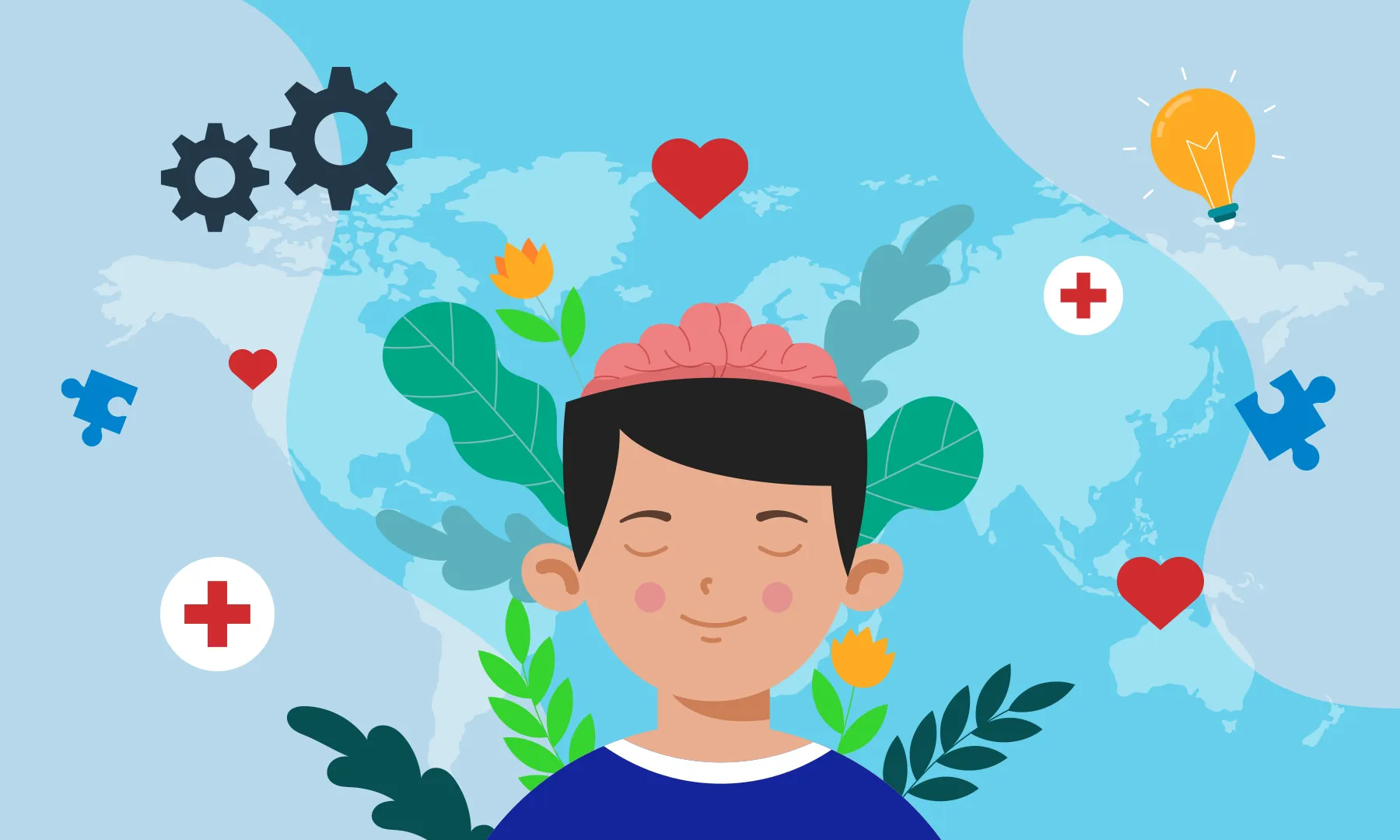When you’re sniffling, coughing, or running a fever, calling in sick is a no-brainer. But when your mind feels foggy, your motivation is gone, and your emotions are running wild, things get tricky. Should you really take a day off “just” for your mental health? The answer, increasingly, is yes — and the world is finally catching up to that idea.
If you’re feeling drained by endless work hours, weighed down by personal issues, or trapped in a loop of anxiety and exhaustion, a mental health day could be exactly what you need. Taking time off to rest your mind can reset your focus, restore your energy, and help you return to work calmer, healthier, and more productive.
Sometimes, it’s obvious when to hit pause — maybe you’re reeling from a breakup or upset about a bad performance review. Other times, it’s less clear. But caring for your mental health now can help you build resilience, balance, and a long-term sense of well-being.

The Meaning Behind World Mental Health Day
World Mental Health Day, celebrated annually on October 10, started in 1992 with the World Federation for Mental Health. Today, it’s supported globally by the World Health Organization (WHO).
The goal? To raise awareness about mental health issues, break the stigma surrounding mental illness, and encourage everyone — from workplaces to schools to individuals — to make mental health a priority.
As conversations about self-care, therapy, and burnout become more open, World Mental Health Day serves as an important reminder that mental health is not a luxury; it’s essential.
Signs You Might Need a Mental Health Day
Feeling unsure if you should take the day off? Here are common signs it’s time to step back and breathe:
-
You’ve lost motivation and can’t focus at work.
-
Productivity has dropped despite working the same hours.
-
You’re exhausted after pushing through an intense project.
-
You feel sad, irritable, or angry for no clear reason.
-
Anxiety or depression feels heavier than usual.
-
Sleep is elusive, and rest never feels enough.
-
Stress-related headaches are becoming frequent.
-
You can’t stop worrying about work after hours.
-
Hobbies or social activities no longer bring joy.
-
You’ve withdrawn from loved ones due to stress.
-
You don’t recognize yourself anymore — even outside of work.
-
You’ve grown cynical or sarcastic about your job or future.
-
You’re Experiencing Unexplained Aches or Illnesses
Sound familiar? If yes, your mind might be waving a white flag.

How to Ask for a Mental Health Day (Without the Awkwardness)
You’re not obligated to share the details of your mental health with your boss. If you’re uncomfortable, simply say you need a sick day or are managing a personal health issue — both are perfectly true.
If your company culture supports mental health awareness, you might choose to be open about taking a mental health day. Doing so can help normalize the conversation and reduce stigma for others in your workplace.
Still, it’s completely okay to keep things private. The goal is to rest and return refreshed — not to justify your need for a break.
Here are some tactful ways to take that day off:
-
Call in sick: Simply say you’re not feeling well or need to handle a personal health matter.
-
Use paid time off: Remember, it’s your time. You don’t owe anyone an explanation.
-
Utilize your weekend: If you prefer privacy, dedicate a Saturday or Sunday to pure self-care and solitude.
What to Do on Your Mental Health Day
Once you’ve got the day off, the real challenge begins, figuring out how to actually rest.
First, check in with yourself: Do you need to release tension, make lifestyle changes, or simply relax and recharge? The kind of day you plan should reflect your needs.
Here are rejuvenating ways to spend your Mental Health Day:
-
Curl up with a comforting book or movie
-
Get some exercise or go for a walk
-
Treat yourself to a massage or spa visit
-
Spend time outdoors or garden
-
Play with your pet
-
Try mindfulness or meditation
-
Reconnect with a supportive friend
Avoid habits that might leave you feeling worse later, such as excessive drinking, overeating junk food, or hanging out with negative people.
If you find that stress or sadness feels unmanageable, don’t hesitate to seek professional help. A therapist or counselor can help you develop stronger coping tools.

The Real Benefits of Taking a Mental Health Day
Taking a day for yourself can do far more than just give you a breather. Here’s what it can do for your overall well-being:
1. Improved Mental Health
A mental health day allows your mind to reset and decompress. It lowers stress, clears emotional clutter, and helps you approach challenges with a fresh perspective.
2. Heightened Productivity
Rest refuels focus. When you return from a mental break, your concentration and efficiency often soar, improving both your job performance and satisfaction.
3. Better Physical Health
Regular mental health days prevent stress from snowballing into chronic illness. They give your body and mind a chance to recover before burnout sets in.
4. Enhanced Emotional Resilience
Each mental health day strengthens your emotional “muscles.” Over time, you learn to recognize your limits, manage setbacks with grace, and handle stress without breaking down.
Most burnout happens because people don’t know when to stop. Scheduling mental health days proactively helps you understand your boundaries — and protect them.
Final Thoughts
Mental health days aren’t about weakness; they’re about wisdom. Just as your body needs rest after an illness, your mind needs recovery from emotional overload. So, the next time your motivation vanishes or stress takes over, remember — taking a day for yourself isn’t selfish. It’s an act of self-preservation that benefits not just you, but everyone around you.
With inputs from agencies
Image Source: Multiple agencies
© Copyright 2025. All Rights Reserved. Powered by Vygr Media.



















